The UAB Collat School of Business is saying goodbye to several long-serving faculty members after years of service.
Colleagues and loved ones recently gathered together to celebrate the time these instructors spent with students and their commitment to preparing them for a successful career. Read more about their journeys throughout the years.
Retirees
-
Ken Miller, Ed.D
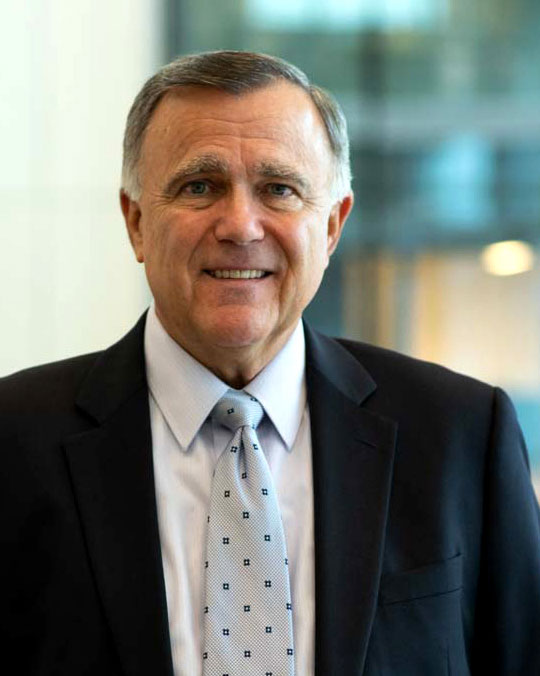
For more than three decades, Ken Miller was a business professional who often thought about pursuing a career in academics. So when he received an offer to a become a full-time faculty member at the UAB Collat School of Business, Miller thought he would teach for “a couple of years and get this teaching thing out of my system.”
That was 14 years ago. And while Miller is now heading toward retirement at UAB, he says his enjoyment of teaching never dissipated.
“Even though they’re very different worlds, I really enjoy both business and academics,” Miller says. “When I was in business for 33 years, I was trying to make money every day. In education, I’ve been trying to make a difference every day. It’s gratifying in a way that you don’t get in business.”
Throughout his business career, which included 16 years as the owner and president of a food brokerage company in Nashville, Miller dabbled in academics. He earned a doctorate degree from Vanderbilt University, then began teaching adjunct business classes at both Vanderbilt and Belmont University.
“I’d always had this itch to teach,” Miller says. “My colleagues on the business side couldn’t understand why I would do that, but I thoroughly enjoy academics.”
After selling his business, Miller says he was in good shape financially and was able to move to Birmingham so his wife could help take care of her aging parents. In 2006, Miller began teaching adjunct classes at UAB, and two years later he received an offer from Robert Robicheaux – who at the time was chair of Collat’s Department of Management, Marketing and Industrial Distribution – to join the faculty full time.
“I give him full credit for talking me into it,” Miller says. “I had never intended to do it, but I’m so glad I did.”
It did not take Miller long to realize he was well suited for his new role. Miller says he basically just took all the things he learned over the years in the business world and began imparting those experiences onto his students.
“Everything that I did in business prior to UAB prepared me for UAB,” Miller says. “I’m very adamant about bringing the real world into the classroom and marrying it to the academic theory. They’re both equally important.
“For the most part, there is nothing in the business textbook that we use in the classroom that I haven’t seen or done. So I can take that textbook and add to it from my business experience as an owner-operator, which I really enjoy doing. I find that to be a rich combination of things to bring to the classroom.”
Initially, Miller primarily taught undergrad marketing classes, which provided him with a quick appreciation for the wide variety of students who attend UAB.
“This is a very diverse environment among the student body,” Miller says. “My classrooms have been international in scope.”
After four years, Miller took over as director of the MBA program. He says that only increased his enjoyment of teaching, because it put him in direct contact with many students who already worked in some form of business and were striving to further their careers.
“In the business world, time is money. At my company, we’d come in on Monday and immediately make big decisions,” Miller says. “Things don’t move as quickly in academics, but that’s the beauty of teaching an MBA student. I call talk to these rising middle managers, offer some insight, and they can go use it the next day. That’s a good environment to be in.”
Miller has enjoyed keeping up with his students after they received their degrees. That’s when he realizes the difference he has made in their careers and lives, he says.
“I’ve gotten positive feedback (from former students) throughout the 14 years I’ve been here,” Miller says. “In business, I know I’m doing a good job with my customers when they don’t complain. They expect me to do a good job. But when my phone rings at UAB, a lot of time it’s somebody who wants to thank me for something. That’s been extremely gratifying.
“Being at UAB has been absolutely great. (Dean) Eric Jack has done a marvelous job leading this school, and I’ve really enjoyed running the MBA program and having success with it. But it’s time for me to do some other things that I haven’t done in a big way yet. I want to spend time with my grandkids, do some traveling, play golf.
“And I’ll probably teach a few adjunct classes.”
-
Jenice Prather-Kinsey, Ph.D.
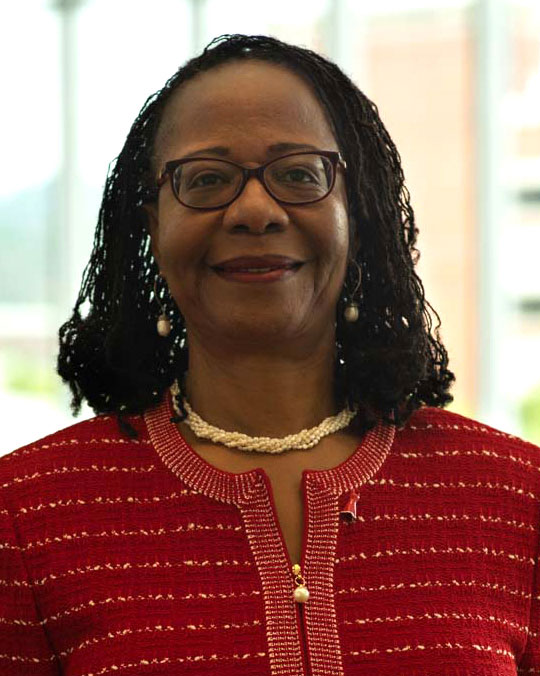
Jenice Prather-Kinsey says her approach to teaching throughout her 38-year career has been to personalize the subject manner as much as possible.
Working on a budget for a company? Think about what it is like to budget for a family household. Analyzing the multiple line-item costs of a project? Compare it to how you prioritize spending on a trip to the grocery store.
“I tried to make the lesson relative to their personal life, or relative to what they might see,” Prather-Kinsey says. “I tried to provide some personal practicality to what I was teaching, with the hope that it would help them be able to better understand it.”
So when Prather-Kinsey reflects upon her collegiate teaching experience, including the past 12 years with the UAB Collat School of Business, she highlights her personal experiences in teaching and mentoring students.
“The moments that stand out the most are the ones when you feel like you helped a student get to a place where they might not have gotten otherwise,” Prather-Kinsey says. “Where you helped them overcome issues that might have prevented them from achieving as much as they did. That’s when I think I made a real difference.”
For much of her career, Prather-Kinsey made that difference at the University of Missouri, where she taught international and cost/managerial accounting during her 26 years there. But in 2010, she moved to Birmingham and joined UAB as chair of Collat’s Accounting and Finance Department.
“I wanted the challenge of being a chair,” Prather-Kinsey says. “I liked the school and thought it was a good opportunity. Then I got a chance to meet some of the students. They were energetic and bright and very positive and supportive. That’s what really drew me to the university.”
While Prather-Kinsey’s primary goal is to make a positive impact upon her students’ lives, she says there were several students at UAB who left their mark on her.
“I’ve had some students where it becomes more like a mentor – or even a parent – than a teacher,” Prather-Kinsey says. “You try to get them steered in the right direction, and it’s as much of a personal steering as an academic steering.
“I had one student in particular in international accounting who became almost like a daughter to me. I held office hours once a week, and she was always there. She was an ‘A’ student, so she really didn’t need to come to office hours. But we just developed that type of relationship.”
On a group scale, Prather-Kinsey says some of her most enjoyable moments have come from working with the UAB chapter of the National Association of Black Accountants.
“That has probably been the highlight of my time at UAB,” she says. “I got along so well with those students, and we accomplished so much. I watched those students really grow. That was fun. I would have done that for free. We had a good time together.”
Technically, Prather-Kinsey is about to head into retirement. But when asked about her future plans, she rolls through a list of community-service projects that – taken together – sounds like a full-time job.
At the top of that list is her involvement with Birmingham’s Maranathan Academy, a school that specializes in helping at-risk youths receive an education. Approximately 50 Maranathan students receive a high school diploma each year, and more than half those go on to attend college.
“These are children who have gotten in trouble, or who live in an environment that doesn’t support education,” Prather-Kinsey says. “These students probably wouldn’t have even graduated from high school if Maranathan hadn’t picked them up. I try to support them any way that I can.”
Prather-Kinsey also serves as the treasurer of the King’s Home Shelby Auxiliary (a support organization for abused women and children) and is president of the Greystone Ladies Club. In addition, she leads a Bible study group called The Porch Ladies.
“I have found that experience with them to be freeing and rewarding,” Prather-Kinsey says about The Porch Ladies. “God has touched my life so abundantly as a result of leading these ladies. I believe my successes in life are attributable to the guidance I’ve received from God.”
In turn, Prather-Kinsey has tried to pass along whatever guidance she can to her students and others. And to all of them, she offers one piece of advice above the rest.
“No matter what happens,” she says, “don’t give up.”
-
Julio Rivera, Ph.D.
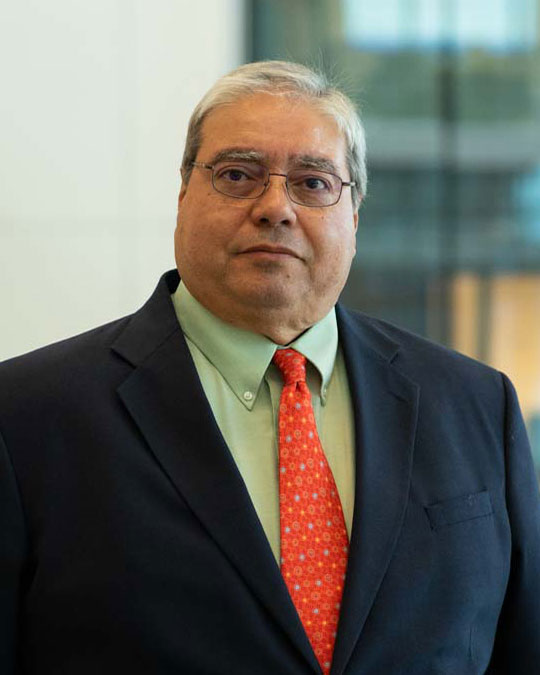
Julio Rivera came to UAB in 1988 to start building his career. He ended up helping build a major and expand a university.
Rivera was completing his doctorate at Mississippi State University when he accepted a position as an associate professor at the Collat School Business. Initially, he was content to teach classes and gain experience. He planned to look around for new possibilities within a few years.
But several things occurred that convinced Rivera he should spend his career at UAB. First, the university began to grow rapidly, expanding well beyond its medical school roots.
“When I first got here, the area of the university that was not the medical or research side was essentially a commuter campus,” Rivera says. “We existed mainly to provide educational services for people in the Birmingham area who wanted to get a college degree.
“That changed over the years, and the rest of the university grew and became more of a traditional four-year college. You had people coming here straight out of high school from other places. I liked what was happening at the school.”
In turn, Rivera began to become more involved in the school. His first big task was to oversee the creation of a separate major in information systems.
“We were actually building a major out of a concentration and putting in the various courses needed to make that major function,” Rivera says. “I helped set up labs and was involved in all those types of things. I found that to be more interesting than just teaching a few courses. It was the kind of stuff I like to do.”
Eventually, Rivera widened his scope to include campus-wide leadership roles. He served on the UAB Faculty Senate, including a stint as chair for a year, and participated in several university-wide committees. In 2013-14, Rivera served as interim director of the UAB Honors College.
“So I’ve had the work within the School of Business, which I’ve enjoyed, but also at the university level, which has been interesting,” Rivera says. “I’ve had a much different perspective on the university as a whole than most faculty. I got to see how decisions were made at the provost and president level and was able to have input on those things.
“It was nice to get out and see what the rest of the university was doing, and how all those things worked. That really opens your eyes.”
Of course, there also were students to teach, which Rivera admits could be a challenging prospect with some of the complicated material presented in his classes.
“It was important to be able to get the students to internalize the material in terms that they could understand,” Rivera says. “I would try to give them a situation that sounds like something else they’ve seen before in their life. Then it’s easier to walk them through the material and have them learn what works and what doesn’t.”
For some students, this approach required patience and understanding from Rivera. But he says there were moments when the payoff made all the effort worthwhile.
“You would see students come in with little or no knowledge of the subject, who then get that knowledge and all of a sudden sort of blossom,” Rivera says. “After that, they’re doing things they probably never dreamed they’d be able to do, simply because of the knowledge and skills they get as they move on. You see that lightbulb go on in their head sometimes, and that’s very satisfying.”
Rivera says he will continue trying to give students that lightbulb moment following retirement.
“I will probably keep my hands in teaching, especially now that we have the ability to do so much stuff online,” Rivera says. “I’m looking into doing that, though not immediately. I’ll probably take a semester off. I’d like to travel and do some other things. But I don’t want to completely quit.”
That’s because Rivera still has something to offer, and he does not want to walk away from that just yet. After all, Rivera is a native of Honduras, and became a United States citizen because he wanted to experience the opportunities that can be found in this country.
“I came to the U.S. for college, met my wife at Mississippi State and became a U.S. citizen,” Rivera says. “This is my country now, and it’s given me many opportunities that I never would have had where I grew up. It has been a great, joyful experience.”
-
Joseph Van Matre, Ph.D.
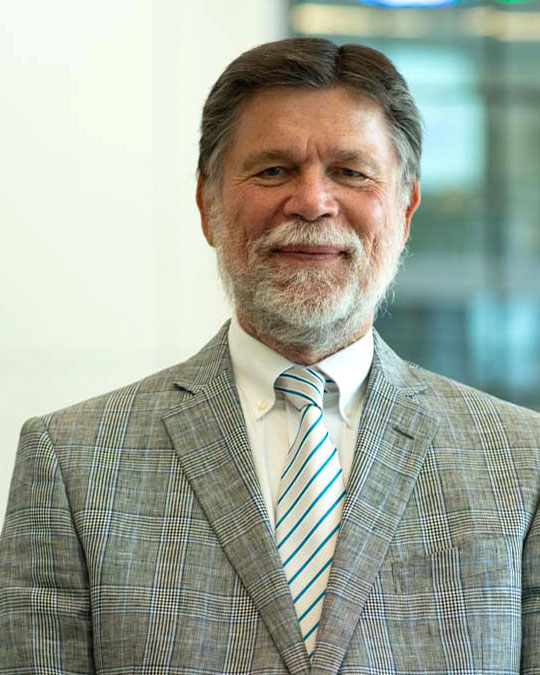
When Joseph Van Matre began teaching at UAB in 1971, the School of Business shared space with the School of Education in a two-story building. Most of his students worked full-time jobs during the day, so he taught classes primarily at night. In fact, one of his classes was held each week from 6 p.m. to 10 p.m. … on Friday.
“Nobody believes me when I tell them that,” Van Matre says, “but back then our students mainly were just people from around the city taking classes after work.”
As Van Matre tells this story, he is sitting in his office in the new 108,000-square-foot, $37.5-million building that houses both the UAB Collat School of Business and the Bill L. Harbert Institute for Innovation and Entrepreneurship. His windows offer an elevated view of the UAB baseball stadium across the street, which is named in honor of the first dean of UAB’s business school, Jerry D. Young.
While UAB has changed tremendously since Van Matre arrived more than a half-century ago, one thing has remained the same: his passion for teaching.
“I’ve loved the career. I have absolutely no regrets about spending all of these 50-plus years right here at UAB,” Van Matre said. “Somebody once told me that retirement is a great place. Maybe, but I know I’ve already been in a great place. I’ve been a full professor in the UAB School of Business. There ain’t no better place to be, and I mean that.”
Van Matre was one of six faculty members hired for the UAB School of Business when it formed in 1971. Despite the humble beginnings, Van Matre says he had a feeling right away that his new job – actually, his first job – contained tremendous potential.
“You could sense back then that this was going to be a growth opportunity,” Van Matre says. “I was impressed by the commitment of the administration to develop the campus and the academics here. The School of Business was accredited in 1973, just two years after we started. That was astonishing.”
Of course, there were some drawbacks during those early years. Professors had to purchase their own computers. “I was the only faculty member in the School of Business who had a hard drive,” Van Matre says. And there were no official sports teams or any sort of genuine collegiate atmosphere. On the positive side, Van Matre says parking was easy to find.
A downside to being one of UAB’s pioneers was that Van Matre did not have any mentors at the university to turn to for advice. “I was the only statistician when I came here. I didn’t have a peer around here who I could draw on,” Van Matre says. “I finally was able to do some work with other faculty here, applying statistics to problems in management, marketing or whatever it might be.”
Van Matre also was able to help UAB forge its path, both academically and in other areas, including the development of UAB athletics.
The business school dean was a big sports fan and instrumental in getting UAB athletics off the ground. As part of that effort, he recruited Van Matre to be on the university’s first intercollegiate athletic committee.
“One of our jobs was to come up with a nickname (for the school’s sports teams),” Van Matre says. “We already knew that Gene Bartow was going to be the athletic director and head basketball coach. So we decided on Blazers, because Bartow’s Birmingham Blazers just sounded right.”
During his time at UAB, Van Matre has taught a dozen different courses at undergraduate, master’s and doctoral levels, including five courses he conceptualized and developed. He endowed the UAB Van Matre Scholarship in honor of his parents, and in 2015 received the Ellen Gregg Ingalls / UAB National Alumni Society Award for Lifetime Achievement in Teaching.
While he appreciates the awards and honors, Van Matre says the lasting impression he will have from his time at UAB is working with his fellow faculty members and teaching thousands of students.
“We have some very fine faculty here who could go to just about any school in the country. They’re great teachers and researchers,” Van Matre says. “It’s been such an honor to work with them. One of the reasons I stayed here is because everyone is just so interesting.
“And I’ve had some wonderful students. One ended up going to medical school, was a surgeon at the Mayo Clinic and is now at John Hopkins. I also had a student in the late 1970s who kept telling me about how her brother was starting this fantastic new restaurant in Birmingham. That turned out to be Frank Stitt. After that, we began taking visiting guests to eat at Highlands Bar & Grill.”
Because he has enjoyed his time at UAB so much, Van Matre admits he might initially be a little lost in retirement. “The people I know who have made retirement work all have hobbies,” he says. “I don’t have any hobbies. My focus has always been in academia.
“There is a quote that I love from King James I. After he visited Oxford, he said, ‘If I were not a king, I would be a university man.’ That still gives me chill bumps. Because out of all the things I might have been, I am so happy to say I’ve spent the last 50 years being a university man.”
-
Phillip J. Ward, Ph.D.
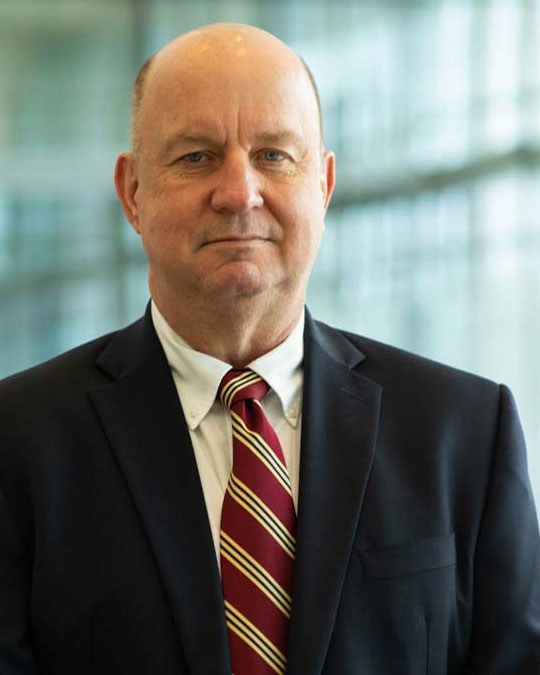
Phillip J. Ward’s teaching career began in his living room. That is where he took the knowledge he had gained from earning a Ph.D in Applied Statistics along with working professionally in business analytics, and used it to help his children with their math homework.
Ward learned something during those study sessions as well. Namely, he discovered how to carefully explain material that seems simple to him, but is complicated to others.
“The whole math and statistics thing came very easily to me to the point that I was a bit of a smart aleck and tended to knock people who didn’t understand it,” Ward says. “But working with my kids, I developed patience and some understanding, and learned how to break things down and explain it to them.”
Ward has put that ability to good use over the past six years as an instructor at the UAB Collat School of Business, where he taught classes in quantitative methods. He is one of five faculty members retiring in 2022. He says his approach to teaching has been “to take my subject matter seriously, and myself not so much.
“I’m a natural ham. I make jokes. I try to make the classes fun,” Ward says. “It seems to be something the students appreciate.”
Indeed, a student post about Ward on a popular professor review board states, “His dry humor and ability to dumb stats down to the average student’s level makes this class a lot easier.”
After spending three years as the director of marketing for SouthTrust Corporation, Ward and a business partner started a data analytics marketing firm in 1997 called Splawn & Ward Associates. During his nearly two decades with the company, Ward further discovered the value of working with people who are not as knowledgeable about such dense subjects as quantitative methods.
“Over the course of the years with my business, I realized that if everybody got it as easily as I did, I probably wouldn’t have a business,” Ward says.
Then in 2016, Ward took the position with UAB. He says he had been considering the possibility of teaching for several years, and finally decided that “if I’m going to do it, I better do it now.”
Even though Ward was new to the teaching profession, he brought a wealth of real-world business experience with him. He took the same approach he had with his children in trying to transfer knowledge and experience to his students though this time it was in a classroom rather than a living room.
“My company was a business analytics company. We applied data-based marketing and sales techniques, primarily to financial institutions,” Ward says, “so I had a large repository of stories that demonstrated that these techniques we’re talking about weren’t just things they had to memorize. They were things that people actually used in business.”
Ward admits he initially was “scared to death” to speak in front of a group of college students. He gradually became more comfortable in the role and grew to greatly appreciate the work ethic and desire to learn demonstrated by many of his students.
“I’ve really enjoyed my interactions with the students. That’s definitely been the highlight,” Ward says. “We have students from so many different backgrounds, including a good representation of international students. I’ve enjoyed getting to know their stories, and I appreciate what they’re doing. We have many students who are going after a degree while also working and raising a family. I’ve gained an awful lot of respect for our student body.”
Ward says he also has enjoyed teaching at UAB because it has helped him stay up-to-date on the rapid changes in the data analytics and quantitative methods fields.
“Things have evolved greatly, especially over the past few years,” Ward says. “There’s new technology and software available that allows people to do so much more with their data and handle so many different types of data. You can’t believe the size of the data sets we’re able to take on now.
“A company can go out and scrape the Twitter-verse every day and get all the tweets that they’re mentioned in, then analyze them for relevancy and determine which ones are positive and negative. To be able to do that is so different than what I did for the bulk of my career. Those types of things have been very exciting.”
Still, after decades of crunching numbers and analyzing data, Ward says he is ready to concentrate on elements of life that exist outside of computers and spreadsheets.
“We have a place on the Coosa River in Clanton that needs more attention, and I plan to start going there more often,” Ward says. “I have a couple of ideas for things I may pursue later on. But right now, this is starting off as a true retirement for me.”
